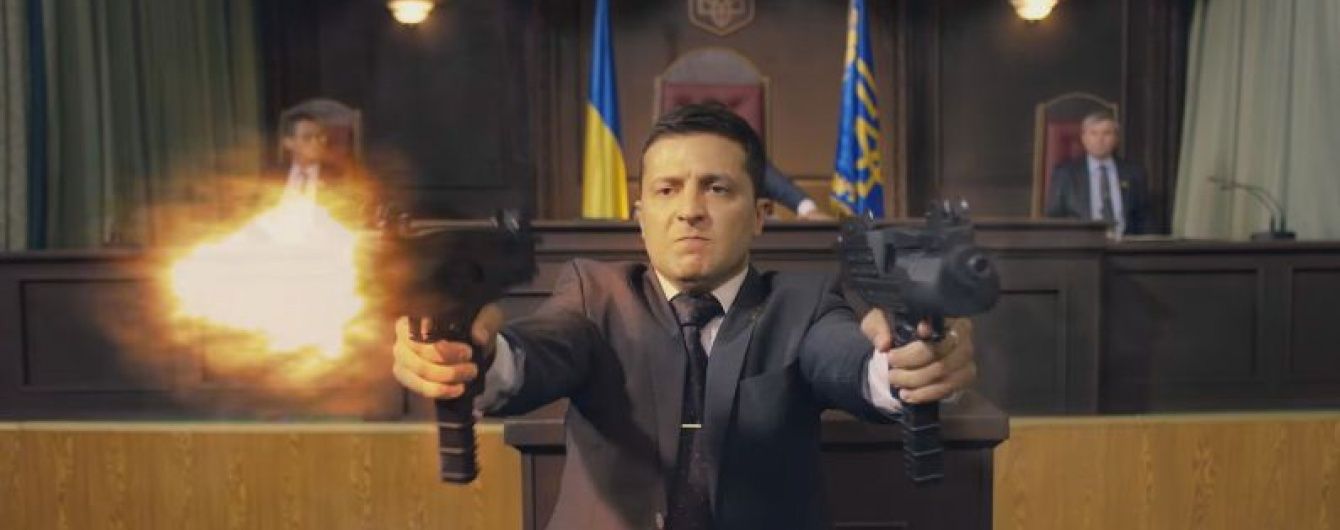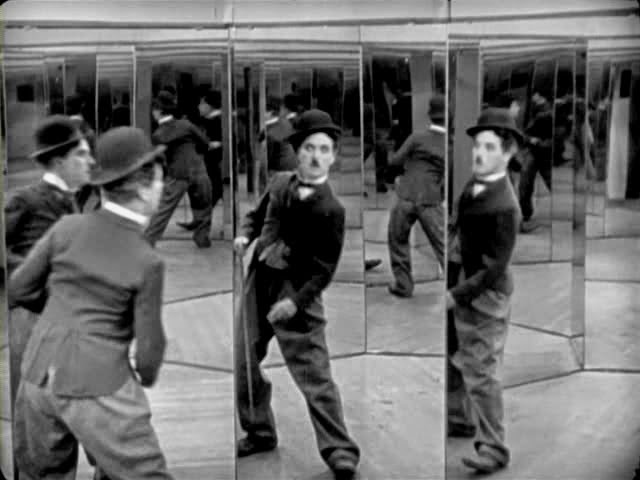In the spring of 2019, current president Petro Poroshenko will seek to be reelected to a second term, like all Ukrainian presidents elected before him. However, his position now differs dramatically from 2014. So what are his chances?
Poroshenko is the second president in Ukraine's history to achieve victory in the first round of presidential elections. The first, Leonid Kravchuk, also came to power in a tense period in the country’s history - just after the collapse of the Soviet Union. In 2014, Poroshenko’s political technologists [a term most commonly used in post-Soviet countries] exploited the idea of the “external threat.” Ukraine’s media overflowed with calls to elect a president in the first round. Firstly, because with Russia’s annexation of Crimea and ongoing aggression in Donas it was pointless to spend money on a second round; secondly, by the end of the second round, there might no longer be a country left at all. And it worked: Poroshenko gained a majority of 54.7% in the first round, rendering a second round superfluous.
Now, by the end of the first term, he can only dream of such a level of support, which according to various polls has now dropped to about 6-11%. The undisputed queen of all public opinion surveys so far is Yulia Tymoshenko, whose ratings vary between 13-19%. This will be her third attempt at running for the presidency. However, being first in ratings can hardly be called a success - the truth is that neither of the candidates is trusted enough.Poroshenko's strongest points, according to his stategists, remain the external threat and the idea of no alternative.
Read also: Ukrainians prefer comedian to current president and other insights from pre-election polls
In the majority of polls, Poroshenko’s rating is no longer even second best. Nevertheless, various political experts do predict him getting through to the second round.
As in 2014, Poroshenko's strongest points, according to his stategists, remain the external threat and the idea of no alternative. The external threat card has been exploited during the years of Poroshenko’s presidency as well. Ukraine has its president to thank for two new words - “zradophiles” and “porokhobots.”
The factor of no alternative

Another aspect of the external threat strategy is the “revenge of domestic pro-Russian forces” card, which is played to consolidate votes for Petro Poroshenko. This possible strategy can be best described by looking at a media case.
In August 2018, a scandal arose around news that one of Ukraine’s channels, NewsOne, had fallen under the control of Andriy Portnov, ex-head of the president’s office during the Yanukovych era. The media linked Portnov to the gray cardinal of Ukraine’s politics, Viktor Medvedchuk. His pro-Kremlin messages are barely concealed - he proclaims the need to restore business and other relationships with Russia. He is also a member of the Minsk Trilateral Contact Group on resolving the situation in Donbas. There, he is regarded as representing more the interests of Vladimir Putin, godfather to Medvedchuk’s daughter, than those of Ukraine. In 2014, the US levied sanctions on him, as his actions represented a threat to Ukraine’s peace, security, sovereignty, and territorial integrity.
Medvedchuk is the collective image of a pro-Russian politician in Ukraine. Whilst it is highly improbable that Medvedchuk will run for presidency himself, his return to the political arena after hiding in the shadows since the Maidan revolution cannot be denied, nor indeed can his influence. Along with his links to NewsOne, Ukrainian media has revealed
further links to another channel, 112. Officially its owner is a certain Eduard Katz who lives in a village in rural Germany, where he earns a living as a used car salesman. Media have reported that Katz is only the nominal owner, while the new management which took over at the channel recently is closely linked to Medvedchuk. Also in the summer of 2018, there was an increase in Medvedchuk being mentioned positively in 112 channel programmes.
Medvedchuk himself denies any connection to either channel.
However, his public return has also been supplemented with bright attributes: his wife, a popular TV host, became a participant in the show Dances with Stars on one of the most popular channels in Ukraine, which led to headlines of outrage in the country. The pendulum swung towards “zrada” [betrayal].Political experts suggest that the recent popularization of Medvedchuk and his being presented as a Mephistopheles in Ukrainian politics can benefit other players, in particular, Poroshenko.
But how might all of this be related to Poroshenko?
Political experts suggest that the recent popularization of Medvedchuk and his being presented as a Mephistopheles in Ukrainian politics can benefit other players, in particular, Poroshenko. Against Medvedchuk’s background, Poroshenko can appear as the savior of the Ukrainian nation from a pro-Russian course. Similarly, some experts have suggested that behind the scenes Poroshenko and Medvedchuk are on the same side of the fence.
Political expert Mykhailo Besarab says there
“may have been a conversation with Medvedchuk on the candidacy [of Poroshenko during the Presidential elections 2014]. Most likely, for Poroshenko he has been a guarantor of fast agreements with Putin. Maybe these guarantees gave Medvedchuk an opportunity to take his place in Poroshenko’s inner circle. Also, Medvedchuk might have some signs or recordings of some conversations which might be unpleasant for Poroshenko. This is the only thing which I can justify [Medvedchuk] having such a confident position.”
An indirect sign that Poroshenko relies on the strategy of demonizing pro-Russian forces are the words of famous Ukrainian economist Oleksandr Paskhaver who in 2015 was appointed by Poroshenko to be his supernumerary advisor. Recently, Paskhaver publicly stated that he was going to support Poroshenko during the next elections. His main argument was no alternative:
“Now as I see how dangerous the other path is and how powerfully the propaganda system works, I realized that I have to say publicly that I am going to vote for Poroshenko...because a different path for me is very scary.”
Why Tymoshenko is labeled pro-Russian

In anticipation of the new presidential campaign, Tymoshenko has appeared with a new look and a New Economic Course for Ukraine. However, the public reaction to her look has led to a wave of comparisons with a character from the American TV series, Games of Thrones. Moreover, the editorial board of Vox Ukraine found
that her New Economic Course is not that new, pointing towards plagiarism. Later Tymoshenko’s party press office released its answer, accusing Vox of “manipulations.”
However, the main worries about Tymoshenko’s possible presidency relate to her pro-Russian stance.
At first glance, she seems less of a pro-Kremlin agent than Medvedchuk. Nonetheless, in Ukraine today she is more often labeled a “pro-Russian candidate.” Experts read the real messages of Tymoshenko’s statements between the lines. For example, political expert Kyrylo Sazonov is suspicious of Tymoshenko because of her position on the de-facto war in Donbas:
“I see straightaway a familiar hand and handwriting in Yulia Tymoshenko’s wordings regarding conflict settlement in Donbas - that of Russian and pro-Russian forces in Ukraine. I mean that we do not have any conflict in Donbas - we have Russia’s armed aggression against Ukraine, occupying Crimea and part of Donbas. But there can only be one peaceful settlement: Russia takes away its troops and goes away and we restore control,” the expert said in an interview with Radio Svoboda.
Political expert Oleksandr Paliy notes another sign of Tymoshenko’s supposed pro-Russianness. He believes the aim of her recent statements on the need to liquidate the state oil company Naftogaz after the presidential elections is clear - to make Vladimir Putin bet on her during the elections. The head of Naftogaz, Andriy Koboliev, also considers Tymoshenko’s statements beneficial for Russia. If there is no more Naftogaz, then there will be no company for Russia’s Gazprom to pay the $2.6 bn it owes Naftogaz in the Stockholm arbitration court’s decision.
These suspicions towards Tymoshenko can help Poroshenko appear as the better choice.
What speaks for Poroshenko

In May 2018, the Ilko Kucheriv Democratic Initiatives Foundation released a survey revealing what Ukrainians consider the main achievements of Poroshenko’s four years as president.
These include:
- Introducing EU visa-free travel;
- Agreements on the supply of lethal weapons by the US;
- Initiating the creation of a united Orthodox Church;
- Strengthening of Ukraine’s defense capability, continuing with the army reform;
- Maintaining international support for sanctions against Russia.
These achievements immediately became the key messages for Poroshenko’s image campaign on billboards.
However, all these achievements can hardly be seen as exclusively Poroshenko’s. Rather, the introduction of visa-free travel is more a sign of patience from Ukraine’s western partners. It is important to note that the process was held up for two years, with reform grinding to a halt and low progress in fighting corruption being considered the main reasons.
While the situation in the army has indeed changed for the better, Poroshenko’s role in it is again ambivalent. Moreover, significant problems still exist. For example, Vitaliy Deynega, a volunteer and a coordinator of the project Povernys Zhyvym [Come Back Alive] to supply the army with the necessary clothing and equipment, draws attention to the lack of competition in the arms market.
“Ukroboronprom [the Ukrainian defence industry] always used to be a corruption feeder for presidents, during the Yanukovych era as well as during Poroshenko’s. If Poroshenko takes away commercial interest and tries to put things in order there, cheap UAVs and thermal imagers will appear."
And the announced fight against corruption, something that has not made it onto the list of Poroshenko’s achievements, is proceeding more despite than because of Poroshenko. He is well known for putting his friends in key positions, which is why he is often accused of supporting corruption schemes. Politicians close to the President appear in investigations led by the National Anti-Corruption Bureau.
That is how the head of the board of the Center for Political and Legal Reforms, Ihor Koliushko, described Poroshenko’s main drawbacks.
"The oligarchic methods of forming his team, the permissiveness of many of those close to the President and business politicians, the chaos in parliament, which is exercising his political power, and the lack of targeted policies in many areas of reforms."
Nevertheless, neither Poroshenko nor his real or imaginary pro-Russian opponents can boast high ratings, with even show-business stars being considered top candidates in the polls. All of this is a sign of Ukrainians’ complete disappointment - with the current political players in general, and Petro Poroshenko in particular.





